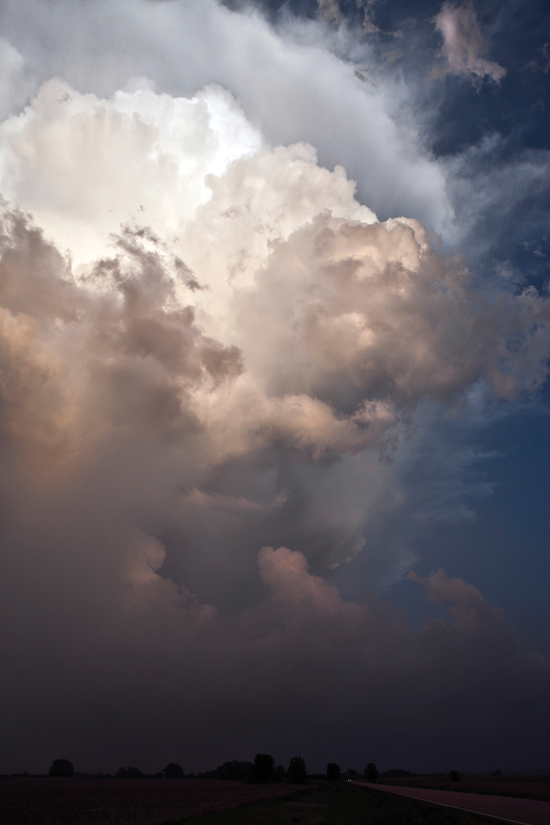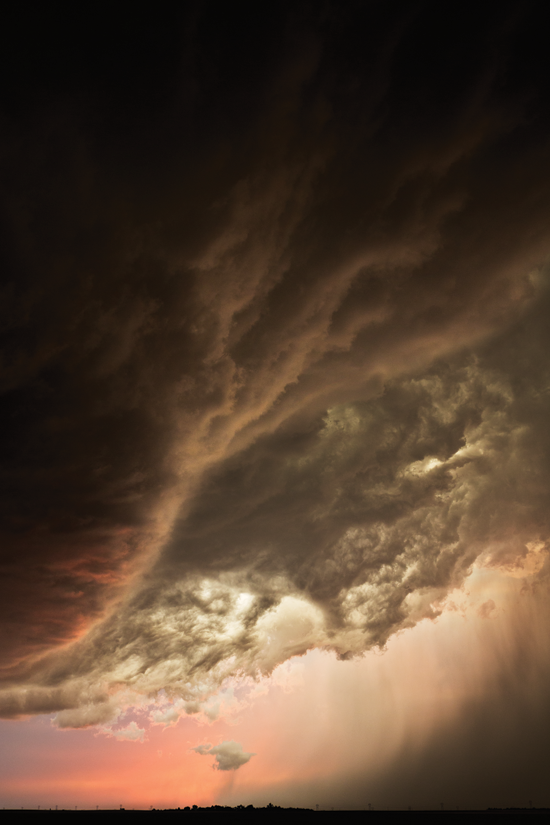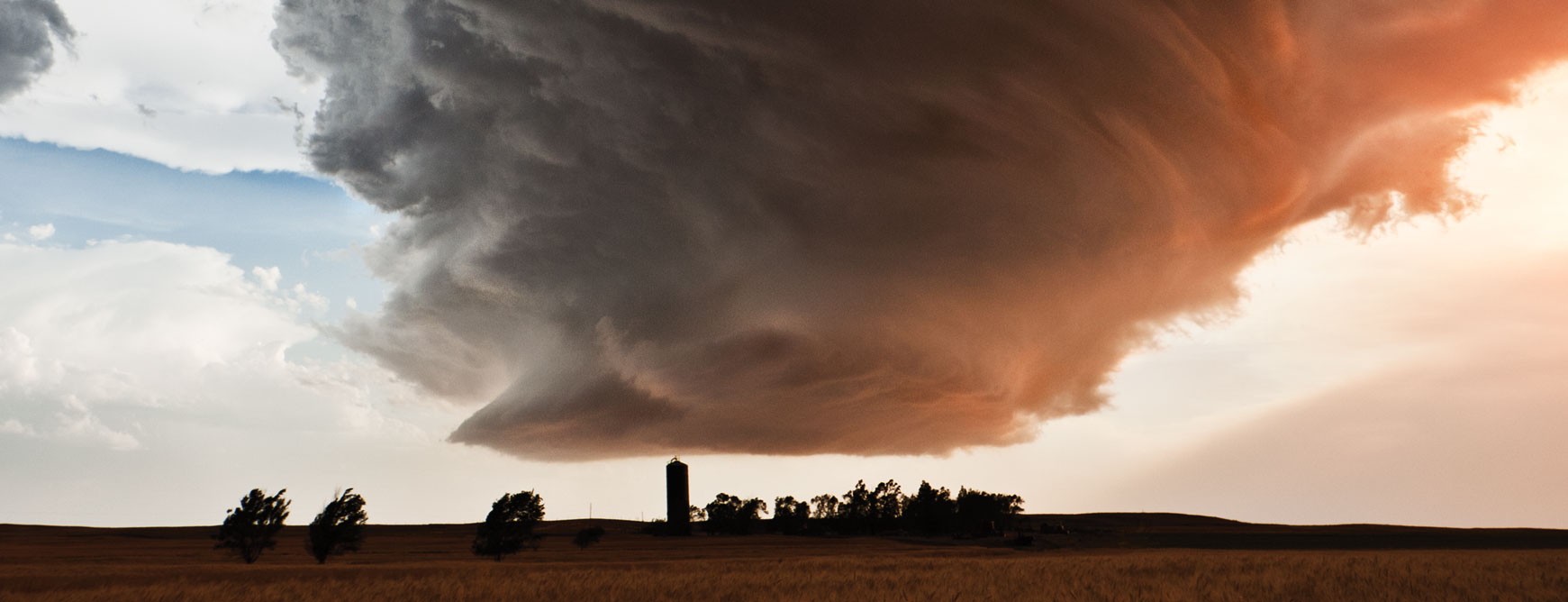One night some 16 years ago, while on a writing assignment in Central America, I got caught by a violent storm in San Juan, Puerto Rico. The fronds of the palm trees along the shore were breaking apart and bending double like seaweed in a powerful tide. The beach was one long seethe of white spume, and the wind was filled with flying debris and a smoke of sand.
The airport closed down. I jumped in a taxi and asked the driver to take me to a modest hotel, and we soon pulled up on a narrow street of colonial houses in the old town, outside the Hotel Milano. It was a small, charming place, with a narrow sliver of a view from my room down to the harbor. But it was already late, with the whole town battened down, and there was nothing to do but rest and listen to the furious panting of the wind outside.
I was on my way home from a coral atoll off Panama, where I had just spent a week in the autonomous territory of the Kuna Indians. The Kuna believe that a violent storm is a being that has lost its way, blundering about blindly, desperate to get its bearings once more. When a storm comes near, they go down to the beach with their pots and pans and bang them together as loudly as they can and shout out over the water, hoping the storm will hear them and find its way again and not stumble through their coconut-thatch dwellings. They say this always works and that hurricanes are unknown in Kuna Yala, their ancestral archipelago.
Here in the colonial streets of San Juan, several hundred miles to the north, you could hear shutters banging, and now and then some distant unidentified crash. The storm was indeed like a lost soul, raging and chaotic, all order gone. But like all raging things, the storm consumed its own passion and eventually wore itself out. By morning it was gone.
The next day, I sat up on the rooftop terrace of the little hotel, sipping coffee in a hesitant dawn sun. The dewy, battered city was busy picking itself up again, and people called out to one another down in the street to compare notes on damage sustained. During the night, I had found in my hotel room a curious document, which I now opened.
It was a self-published book, Dear Children, by a man called Juan San Emeterio. A note explained that a copy of the text had been left in every room, in case guests wanted to take a look. I flipped through it while drinking my coffee, and soon figured out that it was loosely modeled on Kahlil Gibran’s The Prophet: a book of wisdom, composed in short passages of reflection on life’s challenges and how to surrender ourselves gracefully to the frustrations and sorrows that inevitably assail us. The writer was a father and had written it for the benefit of his children. He was also the owner of the hotel.
I was soon to be a father myself. I really had no idea what to make of that. Sometimes I was aware of a vague, radiant hopefulness at the prospect, other times of harrowing unease. The thought of the pain my wife would go through was terrible, and I was deeply concerned about my own readiness. Was I mature enough to set aside my own hungers and yearnings in the interests of the child? Actually, I couldn’t avoid the clear answer to that: no, I was not.
But this book, Dear Children, acted like a tonic. It was forgiving of human frailty; it encouraged patience with ourselves.
A shadow fell across my page. “Ah, you are reading my book,” came a voice from behind my shoulder.
I turned, squinting into the morning sun, and came face to face with San Emeterio himself, a handsome, silver-haired man with deep, patient eyes. He joined me for coffee, and that morning was to be the start of a lasting friendship.

San Emeterio’s story began in Cuba, the island where he was born and raised, and which he resolved to leave as a young man in 1972. He did so by swimming seven miles through the Caribbean on a moonless night, risking the possibility of encountering sharks or drowning, to come ashore in the American naval base at Guantanamo Bay. The Americans welcomed and naturalized him, and six months later, once he was settled in Puerto Rico, he contacted his fiancée back in Cuba as planned, to arrange for her to join him. But by then she had changed her mind about leaving her home and didn’t come after all. He was knocked back, but he picked himself up and began what was to become a successful life as an entrepreneur. In time, he fell in love again and started his first family.
Twenty years on, with his business now grown into a chain of stores, he had become an ever more driven and ambitious man, determined always to see his business get even larger. But along with the chain of stores, his stress and anxiety had also grown. Then one day in midlife, with four kids and an insatiable hunger for ever greater wealth and security, he hit a wall. His wife suddenly left him. She had found another man . . . who just happened to be a divorce lawyer.
In the ensuing divorce San Emeterio lost the wife he still loved, custody of his children, and his business. He turned to drink, and, as he put it, became both suicidal and homicidal. Then one day, hungover and in a pit of despair, it struck him that there had to be another way of looking at what had happened to his life. He must somehow be able to find something good in it. He began what he called an “existential enquiry.” Through reading and meditation he came to the conclusion that his “neurons had needed a shake-up,” and he set out to discover why. Thus his troubles impelled him on a quest to find something positive commensurate with the scale of his losses.
He read avidly and widely in books of wisdom and spiritual guidance, apprenticing himself to various broad-minded Catholic counselors and immersing himself in the works of little-known church mystics. In the end he found what he was looking for: a lasting peace in the midst of a worldly life of work and a complex web of relationships. Since then, his magnetic personality and gently wise writings had won him friends around the world.
That bright day after the storm in San Juan, I spoke with Juan about my own life, and he listened with the patience of a priest. He probed me, and I began to sense that I had been missing something important. At the time, I was busy, confused, often unhappy, and nearly always at least mildly worried about the precarious career I had chosen as a writer. Some years earlier, I had turned to Zen meditation, partly because it seemed to make no demands on a rationalist’s belief system, but also because I could take my angst to the Zen cushion and generally get up feeling better.
But beyond that, although I had attended retreats in different centers over the years, so far Zen hadn’t led me to resolve my fundamental spiritual longings. Often it felt like just another item on my list of duties (or of worries): why wasn’t I meditating more, or making better progress? On top of that, I knew I still hadn’t truly committed to it, and that felt like a failure of courage, of fortitude, of conviction on my part—one more thing with which to lash myself.  In the course of that bright, rooftop morning in Puerto Rico—a morning touched by the sun’s benison after the ravages of the storm—sipping coffee and sharing stories, I began to understand that my woes might not be so bad after all; they could be my own signposts, guiding me toward what I needed, if only I trusted them, rather than condemning myself for having them. Even my not yet having committed fully to Zen wasn’t blameworthy; perhaps it was a good thing: perhaps I just wasn’t ready yet.
In the course of that bright, rooftop morning in Puerto Rico—a morning touched by the sun’s benison after the ravages of the storm—sipping coffee and sharing stories, I began to understand that my woes might not be so bad after all; they could be my own signposts, guiding me toward what I needed, if only I trusted them, rather than condemning myself for having them. Even my not yet having committed fully to Zen wasn’t blameworthy; perhaps it was a good thing: perhaps I just wasn’t ready yet.
Juan told me the secret he had discovered: nothing bad had happened to him that didn’t have the potential for good in it. In the years after his divorce he had weaned himself of alcohol and despair, and had come to realize that he could find a new way of living, better than before, with more love and with more time—time for friendship, kindness, appreciation, and patience. The storm that had hit his life could perhaps help him after all. It had, he said, woken him from a bad dream. It was like the Gorgon Medusa: she was the ugliest and cruelest of creatures, yet it was from the place where her blood spilled to the ground that the white-winged horse Pegasus, the most beautiful and loyal beast in all mythology, sprang forth.
As I flew home the next day, it dawned on me that I wanted to visit a small, out-of-the-way Zen center I had heard of in my hometown. I went there soon after my return and, sure enough, easily and naturally entered training with my first true Zen teacher, a training that to this day has not ended. Juan had inspired me to try being patient with my troubled self, and in this case at least, it was just the thing.
Through him I glimpsed something beyond the carrot-and-stick model of life I had been following. I had thought the point was to pursue happiness and flee misery, and this attitude extended to Zen practice. But now I saw a new way of looking at things. What if the point was to start by accepting suffering? Perhaps it was not the enemy. Juan’s assurance of there being a silver lining in every cloud might be a choice, but it was a good choice. As Zen Master Joshu said in the ninth century: “The door of every house leads to Chang’an” (the capital city of Tang China). Every house.
Perhaps we all carry an immemorial wound, an infinite loss, a self-exile we perpetrate on ourselves. It turns us into isolated entities stalking the earth in search of what we think we need—the temporary stays against ennui, despair, loss, and terror. But sooner or later, the wound can carry us toward its own remedy, if we only let it. It seems too much to hope that right in the heart of our troubled selves there might actually be the healing we seek. But if suffering and awakening form a single weather-system, as many a wise person has come to know, then when storms come, perhaps we can accept them with less dread and aversion, and more trust, and even hope. “The door to every house leads to Chang’an.”
Thank you for subscribing to Tricycle! As a nonprofit, we depend on readers like you to keep Buddhist teachings and practices widely available.
